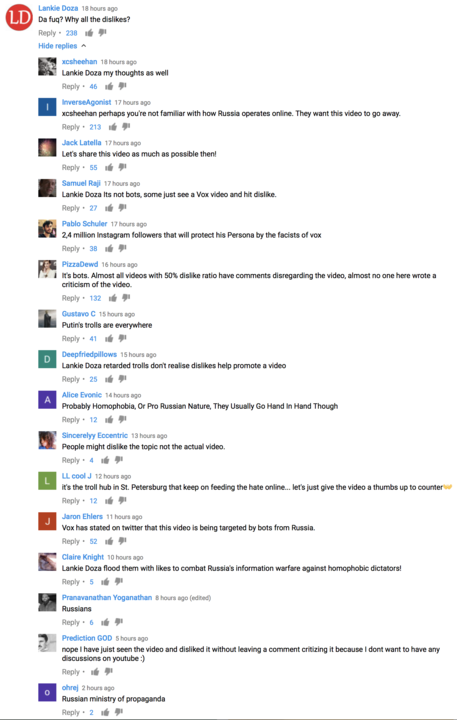
The typical likes-to-dislikes ratio for a Vox video is 10:1, but between 2 to 3 p.m. on Thursday, the producer of the video Mac Schneider noticed the likes to dislikes ratio on the Ramzan Kadyrov video had tipped to 1:1 (as of noon on Friday, the video had 8,453 likes and 4,703 dislikes), Vox’s executive producer Joe Posner told me in an email explaining the timeline. Around this time, there was a spike in traffic to the video from Russia.
watch the video that traffic from russia is bulk-spamming dislikes and trying to get taken down: https://t.co/go7HAVGMgC pic.twitter.com/9Qg91hQFgm
— joe posner (@joeposner) May 26, 2017
Vox also received a privacy complaint via YouTube’s reporting mechanism — the first time it had ever received this type of complaint in its three years of publishing video, according to Posner. Between 2 to 6 p.m., Vox received 230 more similar complaints.

I reached out to YouTube with some questions — as did the Vox team — but haven’t yet heard back on what exactly is going on. The evidence points to a coordinated effort, whether a botnet or humans or a mix.
Exploiting social media’s reporting tools to get a post taken down is a familiar strategy. The Guardian reported in 2015 how paid trolls, for instance, have been deployed to flood social media or comments sections of Western media with pro-Putin and pro-Kremlin comments. Bloggers critical of the government have been targeted with reports of policy violations, and social networks like Facebook haven’t come up with a good way to distinguish between political attacks or real violation reports.